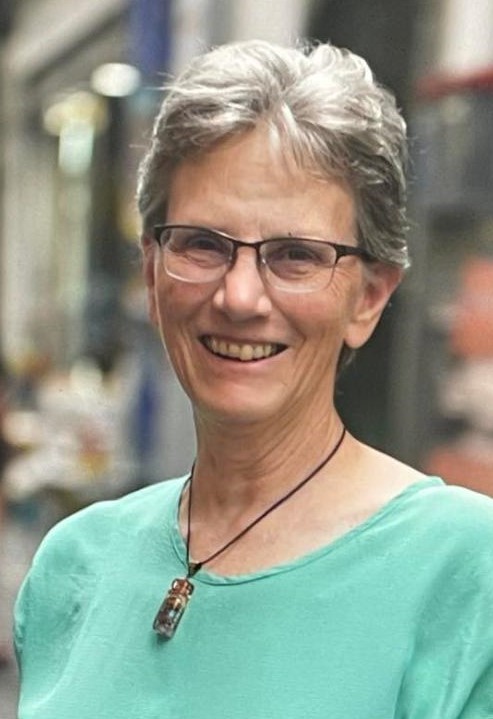Nora Neff Hardy

My name is Nora Neff Hardy and I have a Brain Injury.
Here is what I have to say:
DISRUPTIVE is the word I would use today to describe the way it was after my whiplash from being rear-ended at a stop sign.
I can no longer do math or calculations or cook with any efficacy at all. There was 2 years of eye-piercing pain and a lack of navigational or planning skills.
My frustrations from my new inabilities to understand, cope, and solve, even the simplest problems, left me in what seemed to be insurmountable despair, grief and anger.
I was unable to function like I had before, and I withdrew into a shell of uncertainty and fear.
My younger son giggled at my aphasia, and my older son began to boss me and then ignore me. My husband was taxed with all the chores, budget, cooking and transportation, which he had to have other people do because he worked.
My work was waiting, but there was the reality that I could no longer work as a full-time carpenter. Sounds of all kinds made me grimace and lights had to be just so. Reading is still a big challenge.
You may not see these problems in me or in others, but I still have to manage every one of these symptoms in some degree or form.
If I was to get better, I had to, and find answers myself- I came to realize that recovery was not really about being the same as I was. I had to adjust, adapt and re-wire to work around and with the changes. I had to re-create a different life.
As I began to learn to adjust to the changes I now faced, I realized that there must be scores of people with undiagnosed brain injuries like my experience. I began to see and ask questions to others who were struggling with similar symptoms and found there was often a physical event (or events) of blows or concussions in their histories. Many of these people were struggling with consistent employment, broken relationships, drug and alcohol abuse and homelessness. How can the issues of brain injuries not have an impact on our local social networks, domestic violence, police forces and communities?
A stunning statistic illustrates that people with even mild brain injuries have an 81% higher incidence of suicide!
Because TBI’s are difficult to diagnose, leaving survivors and caretakers at a loss for help with the recovery progress.
Over 80% of brain injuries are “invisible”
Brain Injuries are common!!!! And overlooked, And Misdiagnosed, undiagnosed and affect……every one in some way
Even minor head injuries are major problem.
So, why are intake screenings not a regular part of comprehensive medical and mental health care protocol for all of us??
This is a broken path to healing, for sure.
-If you have been knocked out, or shaken, or even seen stars, you have some degree of a brain injury.
and how it can, or maybe even has, happened to someone you know?
You? Your sister? Brother? Spouse? Partner? Co-worker or boss?
You/I/ we all need to understand this!
Our attitudes must change-we can’t just shake this off and dismiss this-Like we are taught!
Please DO NOT underestimate these possibilities from even minor bumps of blows.
Over the last 27+ years I have done copious amounts research and I have worked as an advocate and educator to reveal some of these facts about the invisible traumatic brain injuries.
If I had only had help and known what to do–I could have cut off years of my recovery process
But with the right treatment program, patients can and do improve. People are still people- we can and do improve over time.
We cannot heal if we do not recognize the source of the problem.
Will you educate yourself about the signs and symptoms and speak up, advocate, and do not remain silent about these insidious, and invisible injuries?
